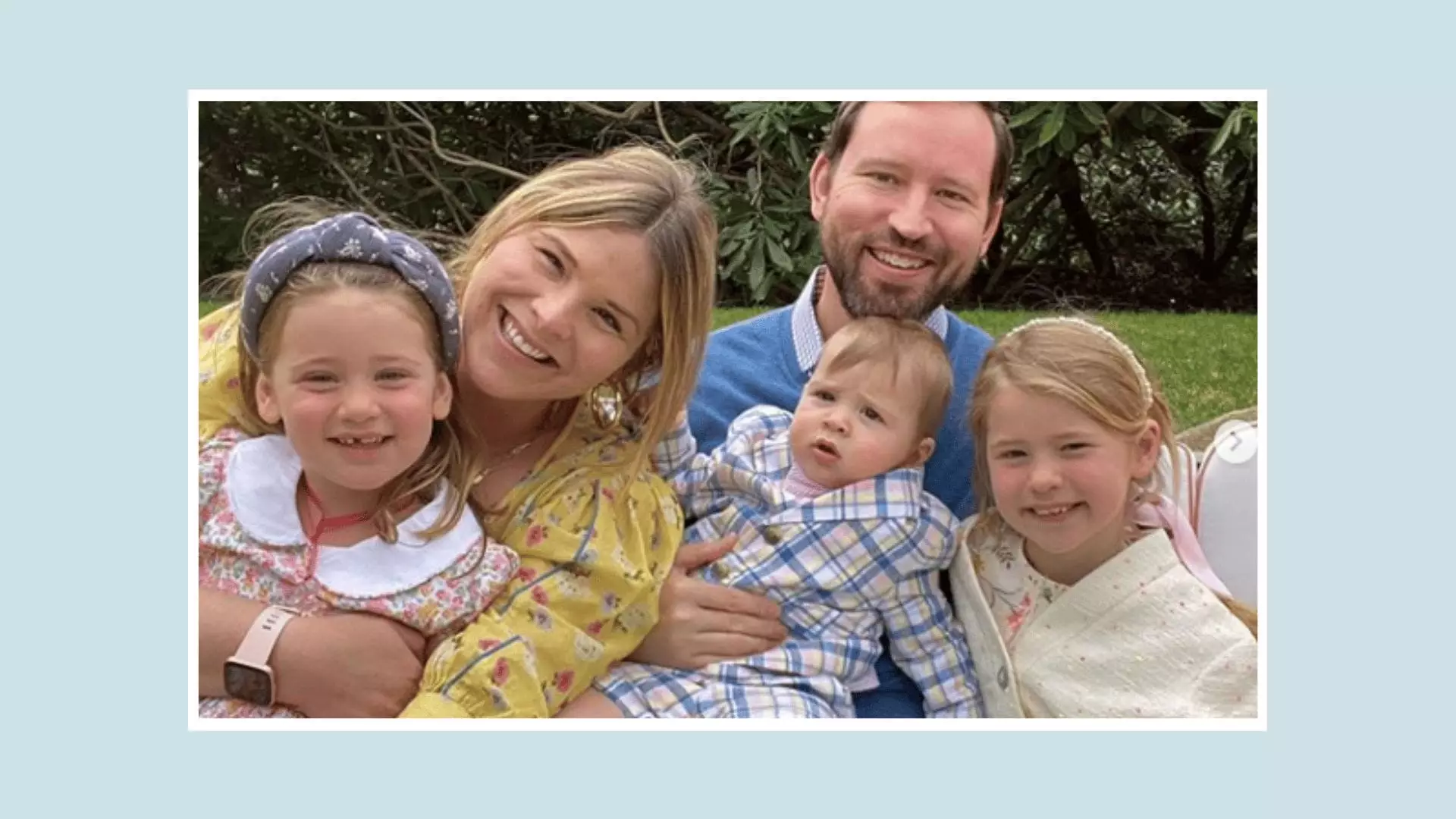Motherhood brings with it a tapestry of emotions, and for celebrities, the experience can be both scrutinized and celebrated. Jenna Bush Hager, the daughter of former President George W. Bush and a loving mom to three children, reflects on her personal journey through pregnancy and parenthood in her poignant memoir, *Everything Beautiful in Its Time: Seasons of Love and Loss*. Her candid storytelling reveals the complexities of navigating unexpected circumstances, especially when they intertwine with the societal perception of celebrity life.
Bush Hager’s story begins with an unexpected chapter. Prior to the arrival of her son, Hal, she experienced the heart-wrenching challenges of infertility, compounded by her family history of similar struggles. An ectopic pregnancy preceded her first child, instilling a profound sense of vulnerability. Through her writing, she captures this fear and uncertainty, creating a relatable narrative that humanizes her experience and resonates with many readers.
When Jenna discovered she was pregnant for the third time, it was a moment overshadowed by guilt and reluctance. Her family had not planned for another child, and this unforeseen blessing brought with it a wave of conflicting emotions. Surrounded by friends and family members, such as her twin sister Barbara and close friend Hoda Kotb—both of whom were in their own paths toward motherhood—Bush Hager found herself grappling with “survivor’s guilt.” This feeling is not uncommon among women who achieve pregnancy while others are struggling with infertility. Her sincere acknowledgment of these feelings is a powerful reminder that motherhood is not solely a joy but a multifaceted journey that often includes complexities and emotional challenges.
In her narrative, Bush Hager describes her pregnancy as an “immaculate conception,” accentuating the irony that her journey defied the prevailing assumptions about family planning. At a time when she thought her childbearing years were behind her, she was faced with the challenge of accepting and celebrating her impending third child. The struggle of balancing joy with guilt provides a richer understanding of the emotional landscape of parenting, one often overshadowed by societal expectations.
Delving deeper into her family’s reactions, Bush Hager expresses her father’s immediate concern regarding her sister’s feelings. The raw honesty with which she recounts their conversation reveals the nuanced dynamics within families, especially concerning reproduction. George W. Bush’s worry for Barbara reflects a deep-seated understanding of the emotional weight that accompanies fertility struggles. Furthermore, Laura Bush’s comforting reminder that “every woman gets her baby in her time” serves as an affirmation of individuality in motherhood, advocating for patience and understanding in the face of societal pressures.
These familial discussions strike a chord, shining a light on the importance of empathy and support systems during pregnancy. Jenna’s narrative continues to unfold with her sister’s light-hearted response to the news of her third child, breaking the tension and showcasing the importance of humor during challenging times. By sharing these moments, she illustrates that even amid uncertainty, laughter can serve as a balm for emotional wounds.
Bush Hager’s relationship with Hoda Kotb further highlights the social dynamics of motherhood among peers. After her fretting about how to share her pregnancy news with Kotb—who has worked tirelessly for her own family through adoption—Bush Hager reveals the warmth and joy in their exchange. Kotb’s reaction, filled with support and understanding, allows Bush Hager to embrace her own joy for the impending arrival of her child. Their connection underlines the importance of mutual support among women, especially when navigating the intricate pathways to motherhood.
In a surprising twist, Kotb shares her own delightful news of welcoming a second daughter into her family. This moment embodies the essence of community and shared joy, serving as a reminder that amidst the difficulties of parenting, there is also space for collective happiness and celebration. Through their shared experiences, both women exemplify the strength found in relationships forged through understanding and compassion.
Jenna Bush Hager’s memoir does not merely recount the highs and lows of her journey into motherhood but rather weaves a narrative that reflects the broader societal themes of family, hope, and resilience. Her story serves as an essential reminder that the journey of motherhood is deeply personal, built upon the foundation of connections with others and the emotional resilience that mothers cultivate over time. In bringing her truth to light, Bush Hager not only shares her experiences but also encourages other women to embrace their unique stories—echoing the sentiment that every journey is beautiful in its own time.

